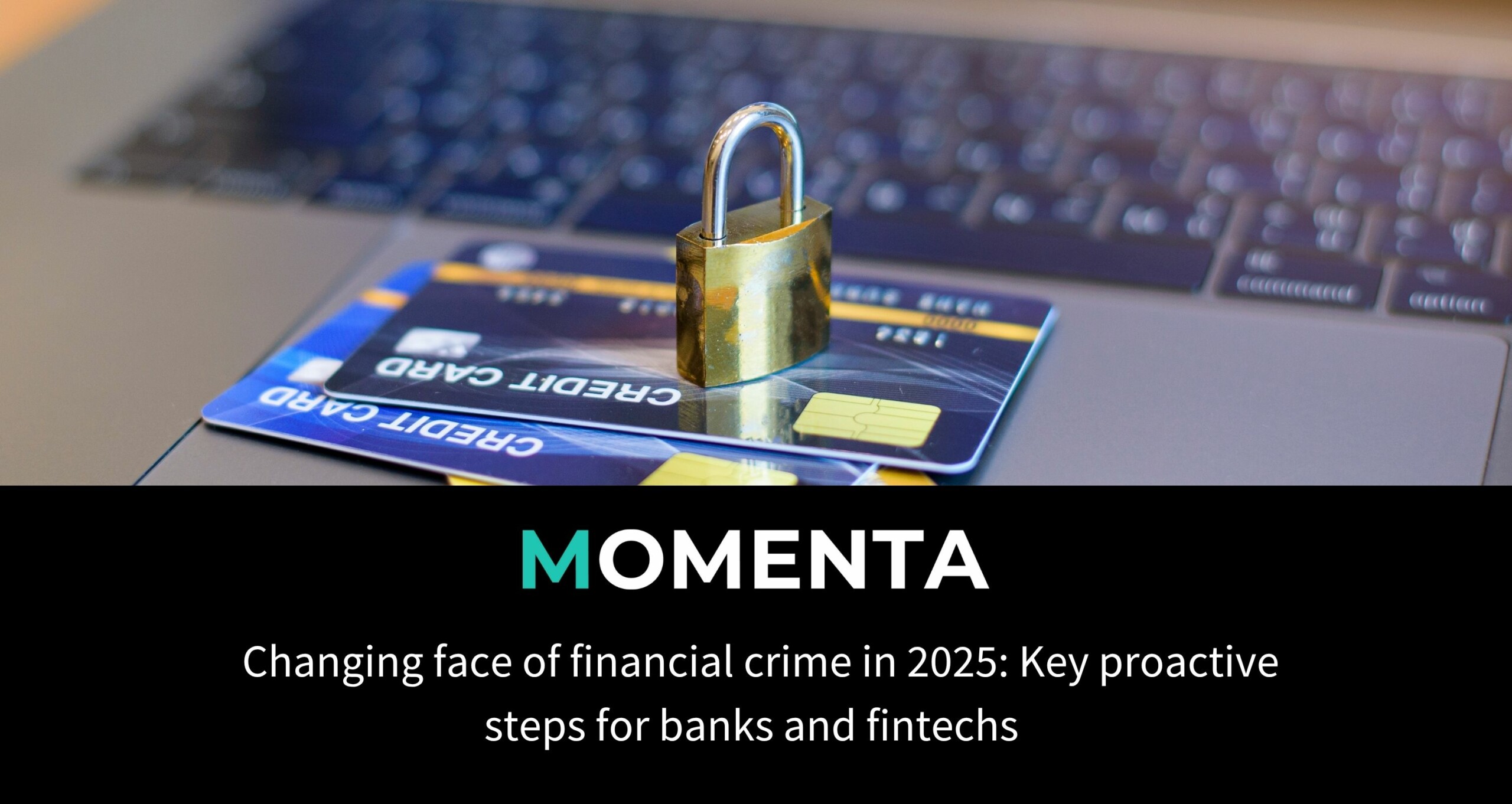Changing face of financial crime in 2025: Key proactive steps for banks and fintechs
24 June 2025
Financial crime is becoming more complex and fast-moving. With the rise of digital banks, new payment systems and stricter regulations, businesses are finding it increasingly difficult to keep up. In 2025, financial institutions, particularly fast-growing challenger banks, face greater pressure than ever to detect and prevent financial crime while maintaining a seamless customer experience.
The sophisticated methods deployed to deceive victims make fraud prevention more critical than ever.
Top five challenges facing the financial services industry
As financial crime evolves, so too must the tools and tactics used to fight it. Here are the top challenges putting pressure on today’s financial institutions and why it’s critical to act now.
| Challenge | What’s happening in 2025 | Why act now |
| AI-powered fraud | Criminals are using artificial intelligence (AI) to create fake documents, videos, and even voices to pass identity checks. | This makes it more challenging for banks to rely on traditional identity verification methods. |
| Instant payments and mule accounts | Real-time payment systems mean money moves in seconds, giving fraudsters little time to be caught. | Banks need quicker, smarter ways to spot and stop suspicious payments before they are processed. |
| Crypto and sanctions evasion | Some criminals are using cryptocurrencies and unregulated exchanges to hide money or break sanctions. | Even banks that don’t directly deal with crypto can be exposed if their customers interact with high-risk platforms. |
| Tighter regulations | New laws, including in the UK, US and EU, are increasing transparency and introducing tougher checks on companies and individuals. | Financial firms must make sure their systems and data are up to date and ready for more detailed checks. |
| Rapid growth of digital banks | Challenger banks are growing fast, but regulators have raised concerns about weak anti-money laundering (AML) controls. | Challenger banks must scale up their fraud and compliance teams as quickly as they grow their customer base. |
Staying ahead: adapting to new threats in financial services
Firms are navigating a complex threat landscape shaped by new technologies, faster transactions, and tightening regulations. The financial crime trends are already having a clear impact on how financial firms operate. Here are key proactive steps to prepare for the new challenges:
- Real-time risk detection
With faster payments, there’s no time for long reviews. Banks now need real-time systems that can flag and stop suspicious activity in seconds. Many banks are setting up dedicated teams that combine fraud, compliance, and cybersecurity expertise to respond quickly around the clock. - Using AI carefully
AI tools can help banks detect patterns and improve accuracy, but if not used responsibly, they can also bring new risks. Regulators want to know how the chosen AI solutions are built, tested, and reviewed. Businesses need to show they can explain the decisions made by AI models and ensure humans check are included where needed. - Addressing the cost and staffing pressures
As regulations become stricter, compliance costs are rising. Banks are hiring more data experts, investigators, and compliance officers to address their regulatory requirements. Challenger banks, in particular, are left competing for talent, often needing to build specialised teams from scratch to keep up with their growth. - Onboarding and identity checks
Fast, smooth customer onboarding is a key selling point for digital banks. But to meet compliance expectations, the onboarding processes now require extra checks. The added process steps can slow things down and may lead to more customers abandoning the process if not handled carefully.
Leading the change
Financial crime risks are evolving fast, and financial institutions must be ready. The growth of digital banks, the speed of payments, and the rise of AI-powered fraud all demand smarter, more agile defences. At the same time, regulators expect more transparency and better controls.
For any business in the sector, this means updating its crime prevention strategy, reviewing systems, strengthening teams, and finding the right balance between security and user experience. The firms that manage this well won’t just avoid fines and potential loss of customers – they’ll build trust and stay ahead in an increasingly competitive market.
Get the expert support you need with Momenta
At Momenta, we understand the pressures that financial institutions face to stay compliant and agile in a changing environment. Here’s how we can help:
- Regulatory expertise
Our experience in resolving highly complex regulatory challenges means we can advise you every step of the way, helping you deliver a compliant project and achieve good customer outcomes. - Automation and AI
By integrating our purpose-built tech solution, we can streamline processes, deliver greater accuracy, and reduce cost. This will allow your business to scale up efforts and manage a high volume of interactions while maintaining accuracy and compliance. - Proven experience
We have successfully delivered over 50 remediation projects from start to finish, driving timely and accurate results. Our team mobilises resources quickly, ensuring efficient and compliant project execution, allowing you to focus on core business priorities.
We’re a trusted provider for financial services firms, discover our case studies:
Digital Challenger Bank Financial Crime Remediation
Financial Crime Remediation – Managed Service
Contact us now to discuss your needs
